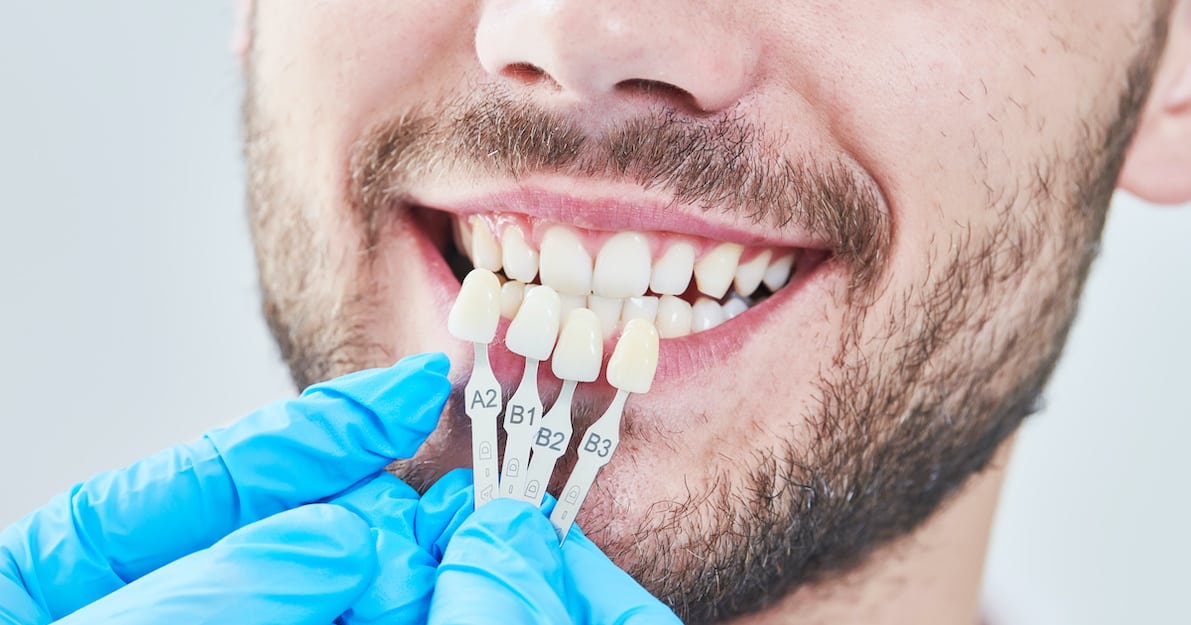Tooth veneers have become a popular cosmetic dental procedure for those looking to enhance their smile. These thin shells, typically made from porcelain or ceramic materials, are custom-designed to fit over your teeth. While they can significantly improve the appearance of your smile by addressing issues like discoloration, gaps, chips, and misalignment, concerns often arise regarding their impact on dental health. One common question is: “Do porcelain and ceramic veneers weaken your teeth?” This blog post aims to provide clarity on this topic.
Understanding Veneers
Before addressing whether veneers weaken teeth, it’s essential to grasp what they are and how they function. As previously mentioned, veneers are thin shells that cover the front surface of your teeth. They are attached to your teeth using a specialized adhesive and can maintain their appearance for several years with proper care.
Veneers are primarily fabricated from porcelain or ceramic materials. Porcelain veneers are renowned for their durability and resistance to staining, albeit they are generally more costly than their ceramic counterparts. On the other hand, ceramic veneers require less removal of the tooth surface during the bonding process.
Do Veneers Weaken Your Teeth?
The process of obtaining veneers involves removing a minimal amount of enamel from the front surface of your teeth. This step ensures that the veneers fit correctly and appear natural. It’s essential to note that the removal of enamel is permanent; it cannot regenerate.
Some may worry that this enamel removal could weaken their teeth. However, when the procedure is carried out by an experienced cosmetic dentist who removes only the necessary amount of enamel for veneer bonding, it should not substantially weaken your teeth.
It’s crucial to understand that while the natural tooth underneath remains largely robust, it remains susceptible to decay and gum disease. Hence, maintaining proper oral hygiene is vital even after receiving porcelain or ceramic veneers.
Potential Risks of Veneers
Although porcelain and ceramic veneers generally do not weaken your teeth significantly, they are not entirely devoid of risks. One possible risk is tooth sensitivity. Due to the slight removal of enamel during veneer placement, your teeth may become more sensitive to hot and cold temperatures. This is why it’s important to work with a highly trained dental professional who applies your veneers with the precision and care that is needed.
Another risk involves damage or breakage of the veneers themselves. While these veneers are durable, they can still chip or crack if subjected to excessive force, such as biting down on hard objects or foods. In case of damage, the veneer will need replacement. This same risk can exist with natural teeth, it’s important to be intentional and care for your teeth and keep up with regular dental care. Regular brushing, flossing, and dental check-ups are essential to maintain healthy teeth and veneers.
Maintaining Your Veneers and Natural Teeth
To ensure the strength and health of your teeth with veneers, it’s crucial to maintain excellent oral hygiene practices. Brush twice a day with fluoride toothpaste and floss daily to remove plaque from between your teeth and along the gum line.
Avoid biting down on hard objects like ice cubes or pen caps, as these can potentially damage your veneers. If you experience teeth grinding or clenching at night (a condition known as bruxism), wearing a night guard can protect your veneers from excessive force.
Regular dental check-ups are also vital for monitoring the condition of your veneers and underlying natural teeth, addressing any issues early to prevent them from becoming more severe problems.
In Closing
In summary, while obtaining veneers involves some alteration of your natural teeth, it does not necessarily make them significantly weaker when performed correctly by an experienced cosmetic dentist. However, like any dental procedure, there are potential risks that can be minimized with proper care and maintenance. If you’re considering getting veneers, it’s crucial to discuss these factors with your dentist to make an informed decision about your dental health. If you’d like to learn more about veneers, contact us today!

